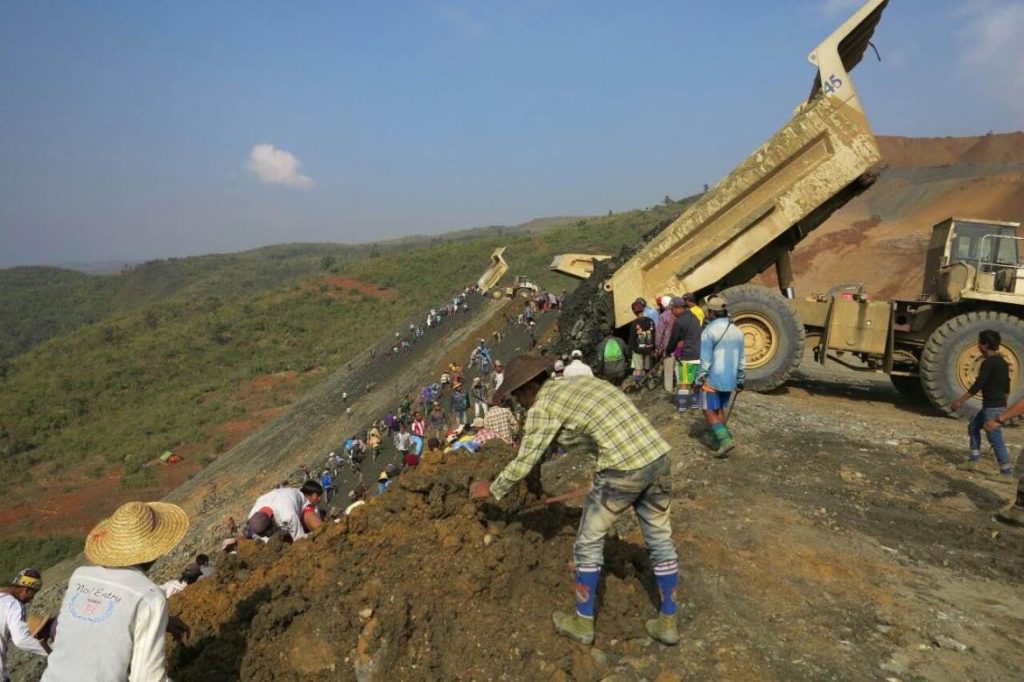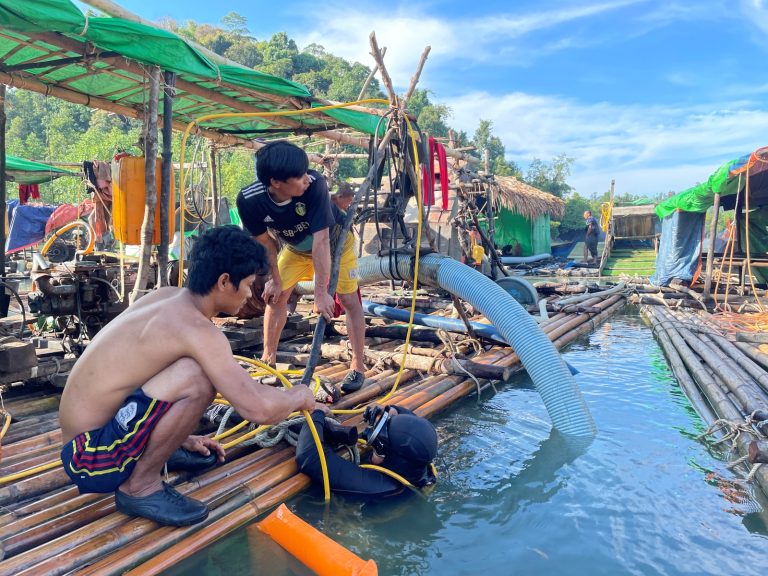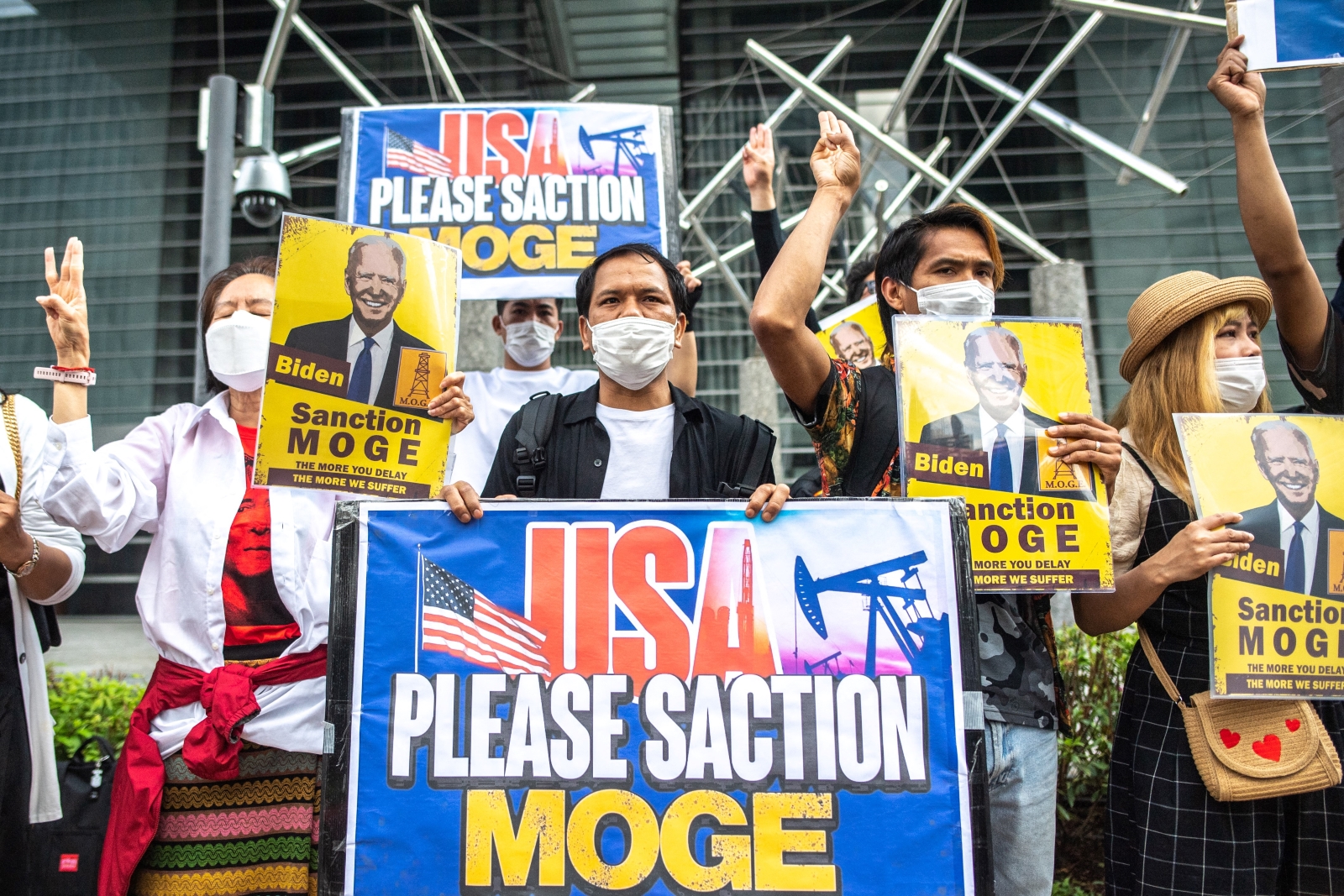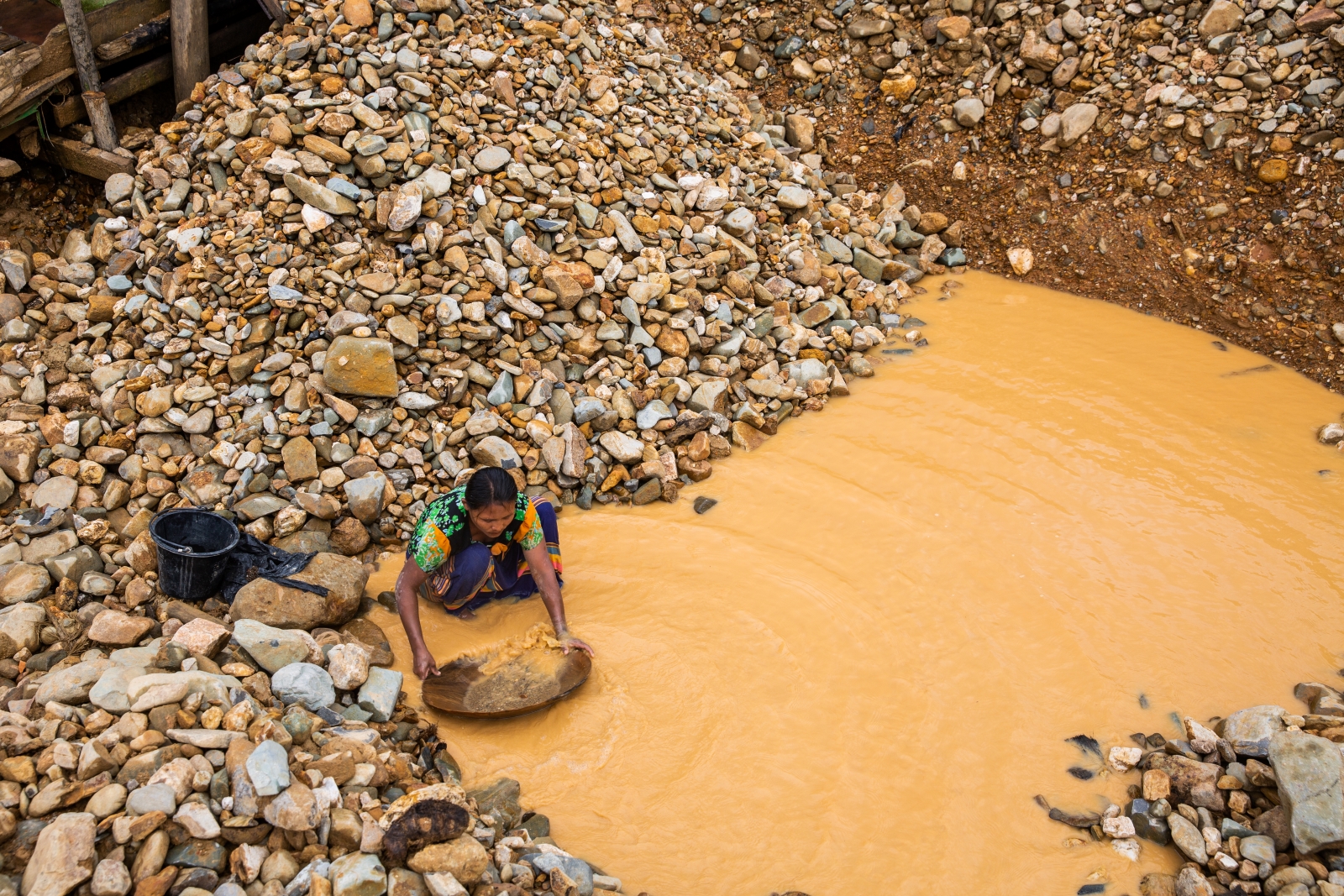The Extractive Industries Transparency Initiative has welcomed the first report to be submitted by Myanmar since it was granted candidate status for membership with the organisation in 2014.
Myanmar has published its first report as a candidate country for the Extractive Industries Transparency Initiative, part of the process of becoming a full member of the EITI.
The report says total revenue from oil and gas, jade, gems and “other” minerals in the fiscal year to March 2014 exceeded K3 trillion (about US$2.2 billion). Oil and gas accounted for 85 percent of the revenue, followed by gems and jade at 13 percent, and “other” minerals at two percent.
With a wealth of onshore and offshore natural resources, the extractive industries sector in Myanmar has enormous growth potential but has been hampered by corruption and a lack of transparency.
“All over the world, national resource companies have been criticised for their opacity – and it is in such circumstances that resources are often mismanaged,” EITI chairperson Clare Short said in a statement on January 21. “Myanmar’s first EITI report contributes to changing this reputation, and sheds important light on the role of such companies in managing the extractive sector,” she said.
The report includes information from all 14 of the operators and partners involved in the oil and gas sector, as well as 30 jade and gems companies that generate at least K10 billion in revenues and 14 mining companies.
Support more independent journalism like this. Sign up to be a Frontier member.
The report, dated January 2, involved collaboration with the ministries of Mines, Energy, Environmental Conservation and Forestry, and Finance, including the Internal Revenue Department.
Data from the state-owned Myanma Oil and Gas Enterprise showed that 5.9 million barrels of crude oil and 462,174 million standard cubic feet of natural gas were produced in the reporting period. The MOGE data reported a production value of $515 million (K495,190 million) for crude oil, of which $182 million was exported, and $4.08 billion (K3.9 billion) for natural gas, with $3.6 billion exported.
In 2013 and 2014, Myanmar launched its first bidding process for onshore and offshore gas exploration and awarded 26 blocks to 24 international and domestic companies. The report does not disclose the bid criteria or whether an established procedure for allocating blocks was followed. However, the report “compiles for the first time a register of all oil and gas, mining and gems and jade license holders enabling stakeholders to see who is operating there, for how long and for what purpose.”
The report also highlights Myanmar’s controversial jade and gems industry, and said it generated $400 million in revenue. This is significantly below an estimate in a report last year by resources management watchdog Global Witness, that put the value of jade production in 2014 at $30.9 billion, with most of the precious stone being exported illegally to China.
In its statement, EITI said that although the $400 million in revenues was much lower “than figures reported elsewhere”, the report had said a reason for this was a decision to use only data from the Myanmar Gems Emporium.
“In addition, revenues collected by the State from the sale of their share of gems and jade production have not been captured by the report,” EITI said.
The Global Witness report called Myanmar’s jade industry “the biggest natural resource heist in modern history,” linking the industry to figures in the military, drug lords and crony companies.
A number of landslides at Hpakant, where most of Myanmar’s jade is mined, have drawn attention to safety issues in the area. In November a major landslide killed more than 100 people, mostly miners. Although no official reason was given for the landslide, mining companies have been blamed for dumping vast amounts of tailings near mining sites.
“Mountains are being turned into valleys and valleys are being turned into mountains,” Global Witness spokesperson Juman Kubba said at the launch of the watchdog’s report, referring to the unstable mounds of tailings.
The EITI operates from a secretariat based in the Norwegian capital, Oslo.
Its website describes the initiative as “a global standard to promote the open and accountable management of natural resources. It seeks to strengthen government and company systems, inform public debate and enhance trust. In each implementing country it is supported by a coalition of governments, companies and civil society working together.”
Myanmar launched the formal process to join the initiative in late 2013 and was granted candidate status for membership the following July.







